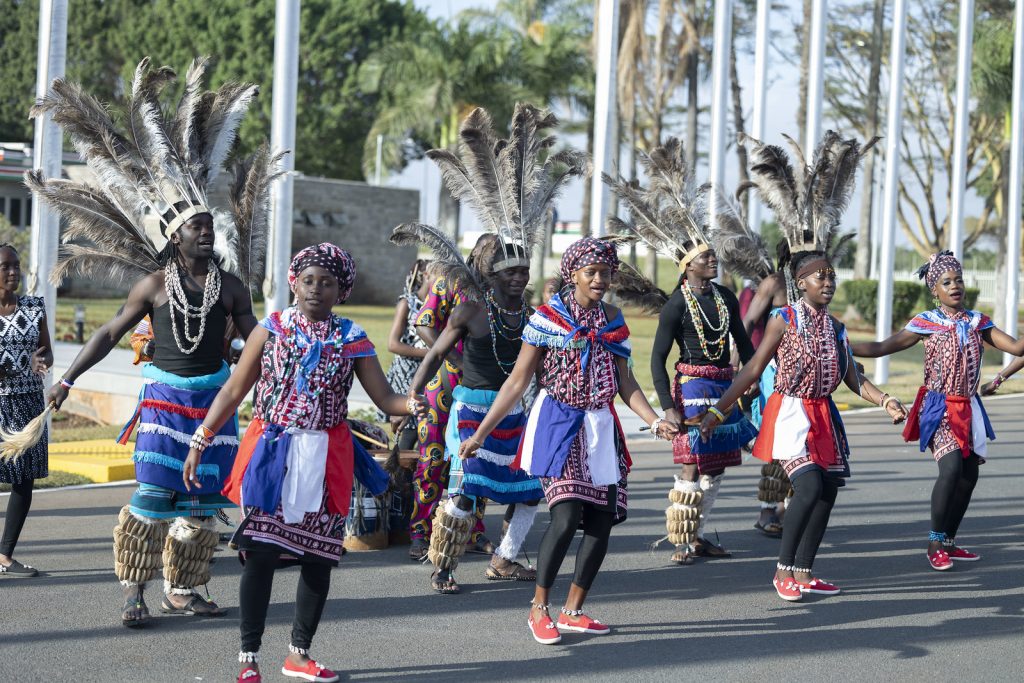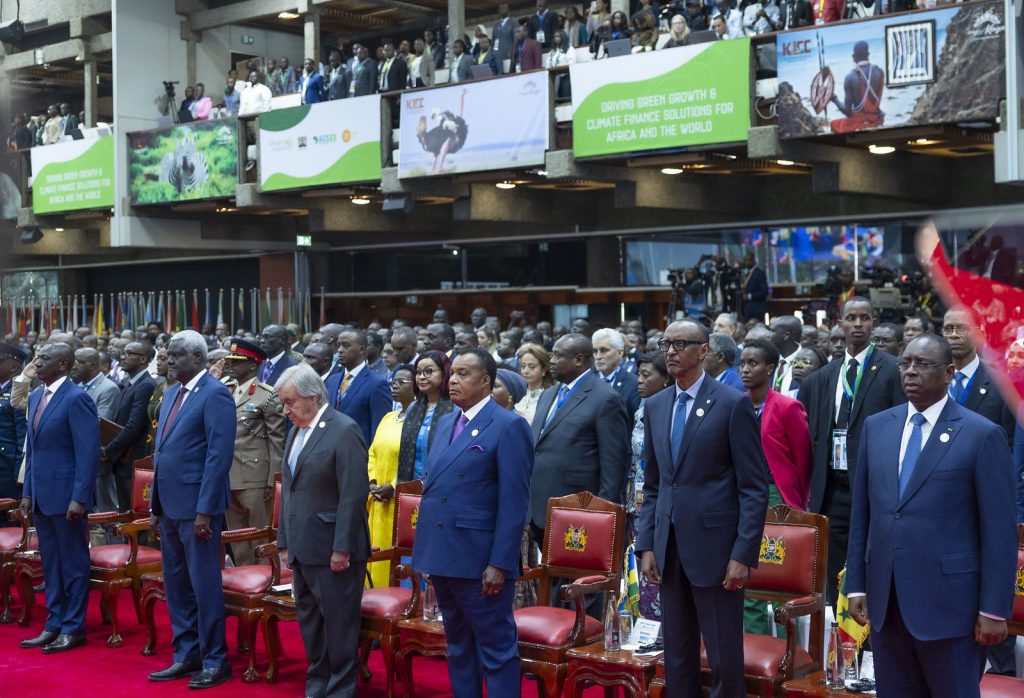Last week (4th – 8th September 2023) marked Africa Climate Week, an annual gathering that brings together leaders from governments, businesses, international organizations, and civil society to strategize on reducing greenhouse gas emissions and addressing the mounting impacts of the climate crisis in Africa.
This year, African Climate Week was complemented by the inaugural African Climate Summit held in Nairobi, Kenya, touted as the largest-ever climate change meeting on the African continent.
Ocean Leaders Barkha Mossaë, Peter Manyara, and Alexis Grosskopf participated in the summit. Through their various professional roles, the Ocean Leaders were at the summit actively supporting the implementation of events under the banner of the Great Blue Wall—an initiative led by IUCN aimed at establishing a network of marine and coastal conserved areas in the Western Indian Ocean. The initiative seeks to benefit biodiversity and local livelihoods, empowering communities to become stewards of the ocean.
Alexis Grosskopf, the founder of Ocean Hub Africa, an organization catalysing ocean-impact ventures in Africa, said, “Ocean Hub Africa (OHA) had the privilege to actively engage in the event alongside its partners to promote the implementation of the IUCN-led Great Blue Wall initiative. It provided an excellent opportunity to rally efforts around the launch of the African Blue Wave, a $1 million initiative to support blue tech startups launched by FSD Africa and IUCN. Ocean Hub Africa will support implementation of the African Blue Wave through its GenBlue program, aiming to foster blue incubators in Africa supported by GIZ Make-IT.”
The cornerstone of the summit was the Nairobi Declaration, which now serves as a blueprint guiding negotiations between Africa and the Western world in prominent global forums such as G20 meetings and COP28.

The final version of this declaration successfully integrated the Great Blue Wall and recognised the pivotal role of the ocean and the blue economy in Africa’s fight against climate change. However, ensuring that the ocean was acknowledged in the Declaration presented its own challenges.
Earlier in the week, a version of the Nairobi Declaration was presented without any reference to the oceans. With only an hour left before negotiations concluded, a determined lobbying effort was launched to ensure the inclusion of ocean-related content in the text.
Peter Manyara, Regional Ocean Partnerships Manager at IUCN Eastern and Southern Africa regional office, explained, “The initial draft resolution lacked strong references to the ocean, prompting rapid mobilization of relevant country contact points to ensure robust integration. The final document duly incorporated the ocean, recognizing the Moroni Declaration and the Great Blue Wall as instrumental in achieving climate goals.”
Ultimately, thanks to diligent lobbying and hard work, the final text successfully incorporated the ocean. Nevertheless, this event serves as a stark reminder that the ocean still remains inadequately represented in major climate discussions.
Alexis Grosskopf said, “The integration of the Great Blue Wall initiative into the Nairobi Declaration signifies a growing momentum and coordinated action around a continent that houses some of the most vulnerable populations and natural ecosystems affected by climate change, including vital seascapes and coastal communities.”


